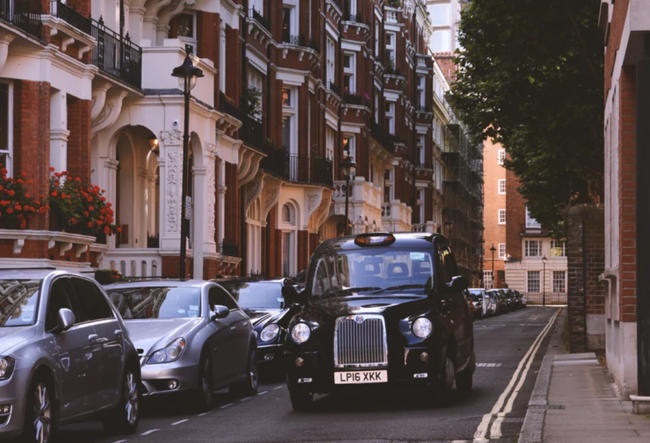Buying a house in London?
Guest post by Mike James
Whether you are moving to the city, buying property for your university-bound child or simply looking for an investment with good potential to increase in value, there are plenty of reasons why you might wish to buy a home in London. But regardless of why you are doing it, this is not a scenario that you should rush into. This is one of the world’s most expensive cities in which to buy property; $1 million will net you just 25.2 square metres of space. By comparison, the same money in New York will buy 40.2 square metres. That means that if you’re buying here you need to learn as much about London’s property market first. So here are five key things that you need to know before you invest in bricks and mortar in the UK’s capital.

Buying a house in London – Image from unsplash
#1 | It’s not a guaranteed way to make money
Of course one of the most common reasons for people to buy property is because they believe that they will see a fantastic return on their investment. It is true that, despite a dip around the time of the financial crash, the London property market has risen and risen over the past decade. However, this might lead investors to have a false sense of security if they assume that any kind of London property will return an investment.
Yes, property prices in the city are still forecast to rise over the next couple of years but that doesn’t mean that anywhere you buy will do well. As we will cover later, extensive research is required and you need to make sure that your investment calculations are not purely based on the market rising further.
#2 | The estate agent represents the seller, not you
It is always important to remember when you are buying – in London or anywhere – that you should take everything the estate agent says with a pinch of salt. Some buyers believe that it is in the interest of the estate agent to act in the interest of both the buyer and the seller. But you shouldn’t forget that it is only the seller that they are representing and they will only get money through the sale.
The phrase that you need to remember is caveat emptor, or ‘buyer beware’. This means that it is up the buyer to make the necessary checks to ensure that they are getting what they think they are. This means that it’s vital that you should invest in a property survey as well as a high quality conveyancer. Or better yet, get both at the same. Daily Move is one of a growing number of London-based conveyancers who offer RICS surveys as well as traditional conveyancing. This provides you with a joined up service to make the most informed decision.
#3 | You need to know your endgame
Because of the volatility of the London housing market, you need to go into any purchase with a plan. That means that rather than simply buying a flat and hoping that it appreciates in value, understand where you are going with it and under what terms you will leave. Are you going to make significant improvement works? Will you see out the length of the mortgage or sell up after two years? When you understand your endgame, you are in a better position to make the most of your property.
#4 | Property auctions can offer great value
Getting a property at a sensible price in London is impossible, right? Most of the time this is sadly the case, so it means that you may need to get creative. Do not discount the possibility of buying property through an auction house. Property auctions can see homes going for less than their market value, although you may need to be careful and do your research into why the property is being auctioned in the first place.
#5 | Location is everything
When it comes to buying in London, it is absolutely essential that you should very thoroughly research the area that you are looking to buy in. Look into issues such as whether the area will see significant transport improvements or whether there are any large scale developments being planned which could see the area rise significantly in value.
Currently popular are the once unfashionable areas of outer London which have been going through a period of gentrification such as Croydon, Barking and Bromley.





